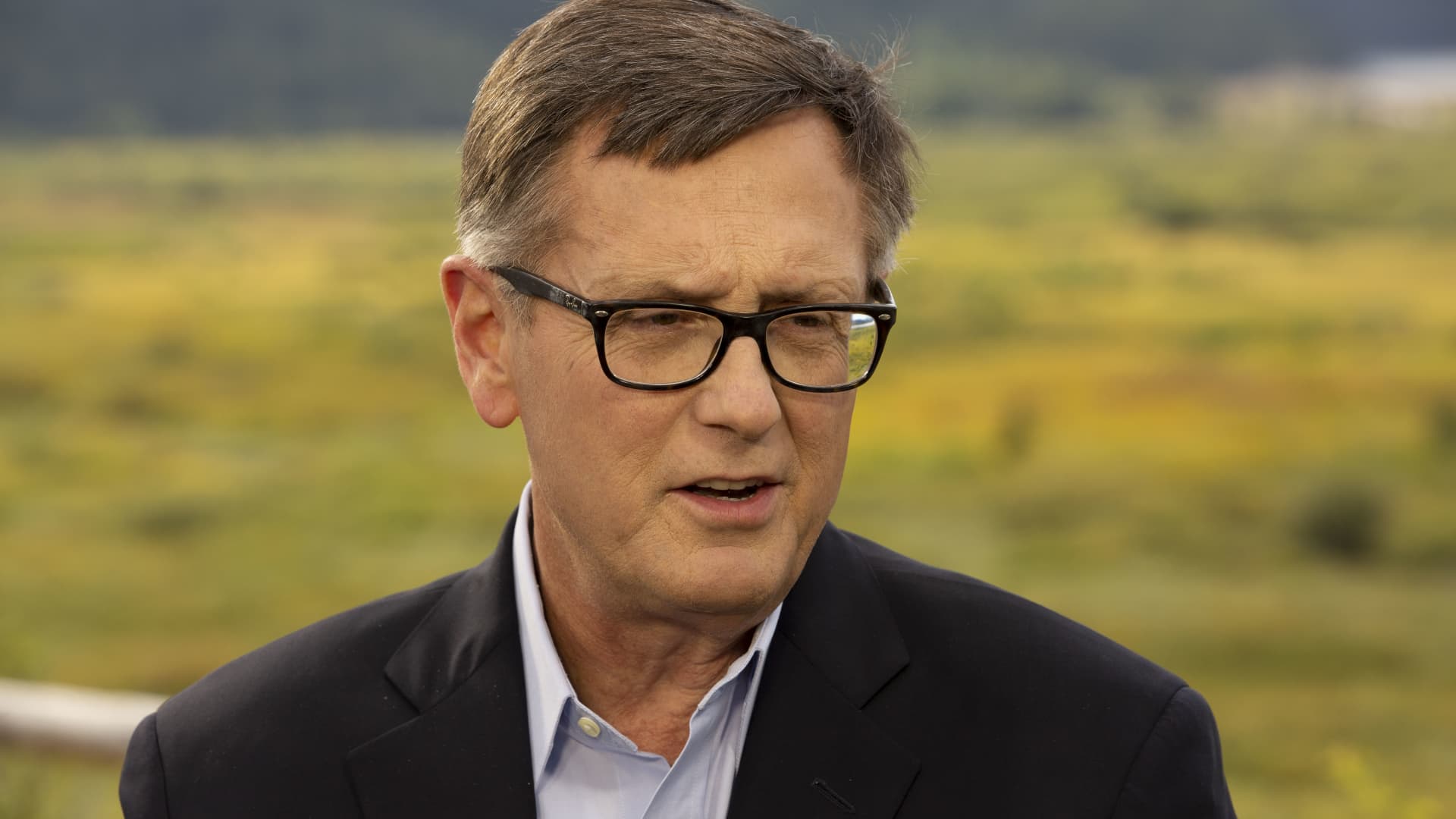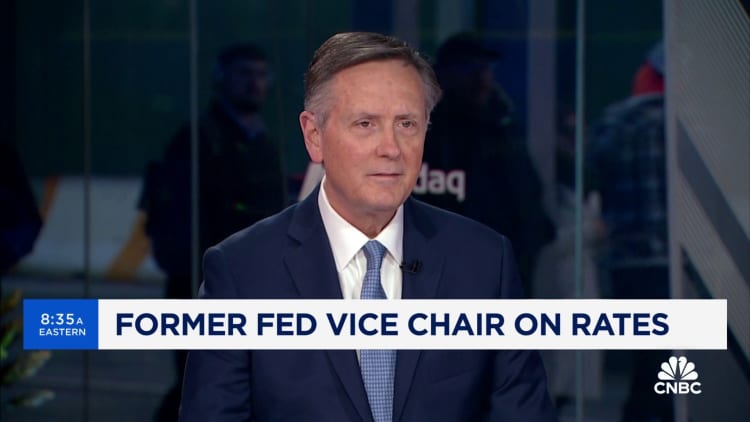Stubbornly high inflation could push the Federal Reserve into a more cautious stance this year regarding interest rate cuts, the central bank’s former vice chair said Friday.
Richard Clarida, who served as Fed governor until January 2022 and is now a global economic advisor at asset management giant Pimco, said his former colleagues need to be on guard against sticky prices that could thwart plans to ease monetary policy this year.
At its meeting earlier this week, the rate-setting Federal Open Market Committee indicated it would likely decrease rates three times this year, assuming quarter percentage point intervals. Chair Jerome Powell said receding inflation and a strong economy give policymakers room to cut.
“This may be more of a hope than a forecast,” Clarida said during an interview on CNBC’s “Squawk Box.” “I do hope that the Fed really moves into data-dependent mode, because there can be a very good case if inflation is sticky and stubborn that they shouldn’t deliver three cuts this year.”
Markets also are expecting three cuts this year, though that pricing has been scaled back after data to start the year showed inflation higher than expected.
Fed officials are banking that elevated shelter inflation is on its way down, paving the way to lower their key borrowing rate from its highest level in more than 23 years. Clarida, however, said the extent to which the Fed can cut is unclear.
“Under a pretty broad range of scenarios, they’re going to get at least one cut in this year,” he said.
However, the calculus gets different as inflation data provides mixed signals.
The Fed prefers the Commerce Department’s measure of personal consumption expenditures prices, with a particular focus on the core reading that excludes food and energy. The headline 12-month PCE reading for January was 2.4% and core was at 2.8% — both above the Fed’s 2% goal but headed in the right direction.
However, the more commonly followed consumer price index in February was at 3.2% for headline and 3.8% for core, both well above the central bank target. Moreover, the Atlanta Fed’s measure of “sticky” inflation was at 4.4% on a 12-month basis and even higher, at 5%, on a three-month annualized basis, which marked the highest since April 2023.
“If the Fed were targeting CPI right now, we wouldn’t even be discussing rate cuts,” Clarida said.
He also noted that even though Powell on Wednesday said financial conditions are tight, they in fact are “a lot easier than they were in November.” A Chicago Fed measure of financial conditions is at its loosest since January 2022.
“What I think is going on here is a delicate balance that [Powell is] trying to navigate,” Clarida said. “Financial conditions will very naturally start to ease when they get the sense the Fed is done and [will start] cutting. Then of course that improves the economic outlook and potentially makes it harder to get inflation down to 2” percent.

 Accounting1 week ago
Accounting1 week ago
 Personal Finance1 week ago
Personal Finance1 week ago
 Accounting1 week ago
Accounting1 week ago
 Finance1 week ago
Finance1 week ago
 Economics1 week ago
Economics1 week ago
 Economics1 week ago
Economics1 week ago
 Personal Finance1 week ago
Personal Finance1 week ago
 Personal Finance1 week ago
Personal Finance1 week ago























